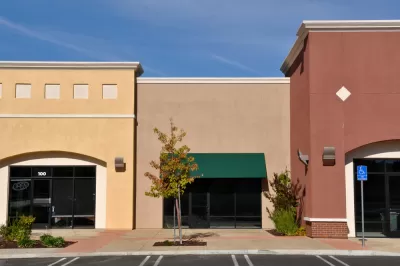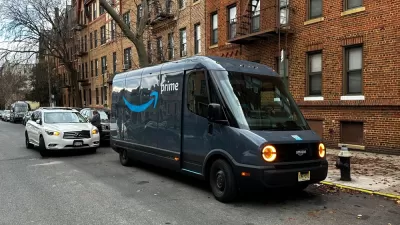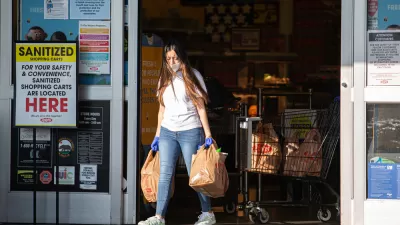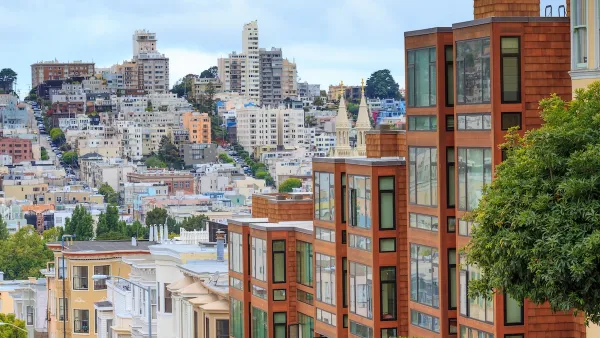The race to deliver goods at lightning speed has the potential to create 'dark cities' as street-level storefronts give way to closed-off warehouses only frequented by delivery workers.

Lev Kushner and Greg Lindsay posit that the growing trend of 'instant' delivery services "threatens to transform downtowns into dark cities, where the everyday commerce that gives streets their vitality has evaporated from view and been reconstituted on an app."
According to Kushner and Lindsay, app-based delivery services have started to occupy significant portions of commercial real estate in cities, replacing formerly vibrant storefronts with private warehouses. This threatens not just urban street life, they argue, but also the small businesses and restaurants that used to occupy street-level retail spaces. "The demand for convenience is seemingly bottomless, but no city has yet found a way to balance the short-term benefit of personal convenience against the long-term costs of eroding community life through decreased social interaction."
The article cautions public officials to anticipate the impact of these new business models, rather than try to retroactively regulate a new industry like they have with ride-hailing and short-term rentals. The authors recommend simplifying retail permitting, developing policies that incentivize mixed-use development, and improving transportation infrastructure to prepare for more delivery vehicles and workers.
While there is a place for a delivery industry, the article warns, "cities need to start thinking seriously, now, about how residents’ personal choices, and the businesses that respond to those demands, can unintentionally transform our cities and communities." In the same way that ride-hailing has added to congestion and vacation rentals have destabilized local housing markets, the 15-minute delivery model could have significant unintended impacts on urban life.
FULL STORY: The Dark Side of 15-Minute Grocery Delivery

Maui's Vacation Rental Debate Turns Ugly
Verbal attacks, misinformation campaigns and fistfights plague a high-stakes debate to convert thousands of vacation rentals into long-term housing.

Planetizen Federal Action Tracker
A weekly monitor of how Trump’s orders and actions are impacting planners and planning in America.

In Urban Planning, AI Prompting Could be the New Design Thinking
Creativity has long been key to great urban design. What if we see AI as our new creative partner?

How Trump's HUD Budget Proposal Would Harm Homelessness Response
Experts say the change to the HUD budget would make it more difficult to identify people who are homeless and connect them with services, and to prevent homelessness.

The Vast Potential of the Right-of-Way
One writer argues that the space between two building faces is the most important element of the built environment.

Florida Seniors Face Rising Homelessness Risk
High housing costs are pushing more seniors, many of them on a fixed income, into homelessness.
Urban Design for Planners 1: Software Tools
This six-course series explores essential urban design concepts using open source software and equips planners with the tools they need to participate fully in the urban design process.
Planning for Universal Design
Learn the tools for implementing Universal Design in planning regulations.
Gallatin County Department of Planning & Community Development
Heyer Gruel & Associates PA
JM Goldson LLC
City of Camden Redevelopment Agency
City of Astoria
Transportation Research & Education Center (TREC) at Portland State University
Jefferson Parish Government
Camden Redevelopment Agency
City of Claremont





























